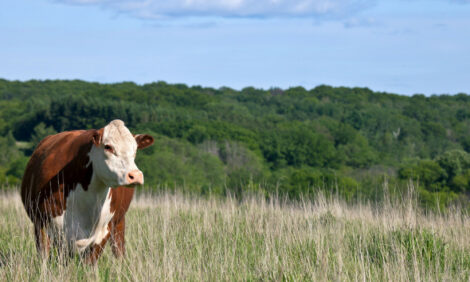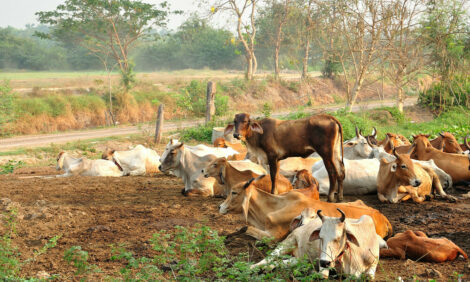



China Changes Tax Regulations To Rein In Food Inflation
BEIJING - China's Ministry of Finance has said it will tax selected grain exports for one-year in a bid to halt escalating inflation.The Republic has also introduced tax exemptions on income from investments in livestock and poultry production as part of its new Enterprise Income Tax Law (EIT). The EIT also exempts taxes on investments in a number of other agriculture and forestry activities, including deep sea fishing, forestry and the production of grain and other food crops.
Both policies began on 1 January and are heralded as a key move to control food prices and stabilise the markets.
| New Year, new tax laws. Moves to curb food price increases have been implemented ahead of China's New Year. |
Export tariffs are now being assessed on exports of oats (25 per cent), wheat (20 per cent), soybean meal (10 per cent), and soybeans, millet and corn (5 per cent).
This new policy comes within a fortnight of China scrapping its 13 per cent export rebate on wheat, corn, soybean and their respective flour exports. It is also just two weeks since the state released 500,000 tons of corn reserves onto the market as part of its programmes to try and control inflation.
Food prices in the republic topped an 18 per cent increase during November 2007 and volume exports for Chinese wheat and corn surged 130 per cent and 87 per cent respectively for the first 11 months of 2007.
South Korea is China’s primary market. Wheat imports from China have increased 309 per cent and caused a substitution effect against other grain exporters to that country. The United States has been Korea’s largest wheat supplier, but imports of US wheat have only increased 10 per cent during this period.
Korea’s corn imports from the US fell 29 per cent through November and imports from China increased by 85 per cent. USDA estimates that about 70 percent of China’s 2007/08 corn production will be used for feed.
Price parallels
In an effort to control speculation in principal foodstuffs ahead of Chinese New Year celebrations in Early February, China's Ministry of Commerce (MOC), announced plans to increase reserve sales of pork and oil to stabilise prices. At then end of December, MOC said that pork prices in local currency terms, were 53 per cent above prices in late 2006. Analysts now expect prices to stay high until the latter part of 2008.
China's pork price increases are running parallel to the pace of appreciation of the yuan, which broke through the 7.30 yuan = US$1 barrier yesterday when trading resumed.
TheCattleSite News Desk


